Has the lockdown been beneficial to sales of specialist drink appliances, with consumers having to create their own café and wine bar culture? Philippa Turrell reports
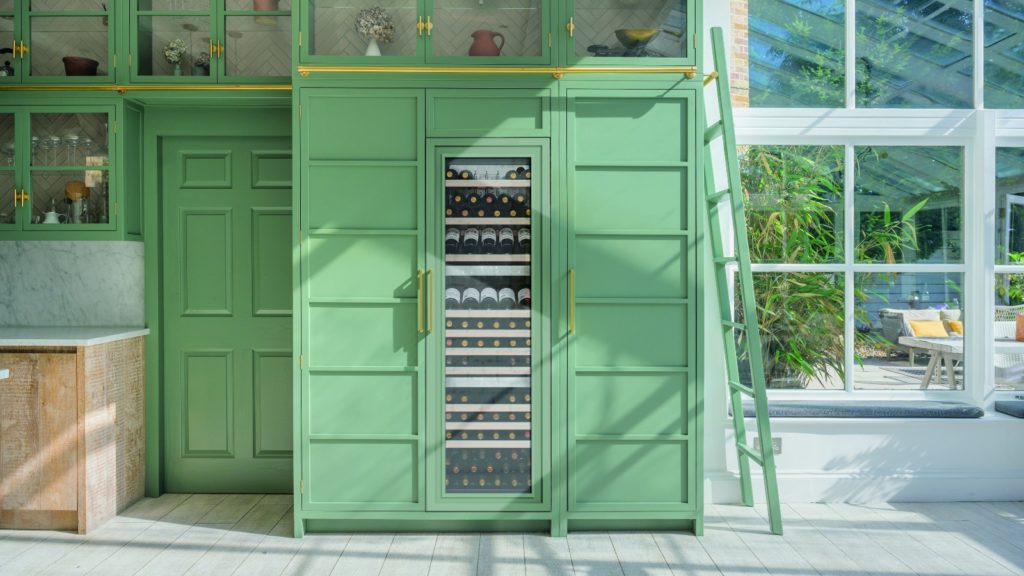
Adding to the Sense Premium Collection of appliances, by Caple, is the integrated wine cabinet which can fit into a frame. With a capacity of 70 bottles, it is available with a glass or full furniture door
The lockdown undoubtedly changed consumer behaviour, with cafes, pubs and restaurants having to close, entertainment was focused indoors.
Whether replicating café culture or realising a tipple doesn’t have to be constrained to the weekend, how consumers choose to drink at home has altered.
Sponsored Video
And this has had an influence on the drinks appliances they are choosing for their new kitchen, as product manager at Caple Luke Shipway explains: “At Caple, we find wine cabinets have always been popular. During this period of lockdown, people weren’t visiting pubs, bars, café or restaurants, so there was an even bigger increase in demand for wine cabinets and there was a rise in coffee machine sales.”
Coffee growth
While the UK may be associated with tea drinkers, coffee consumption soared to 95million cups a day in 2018 up from 70million in 2008, according to instant hot water tap manufacturer Billi.
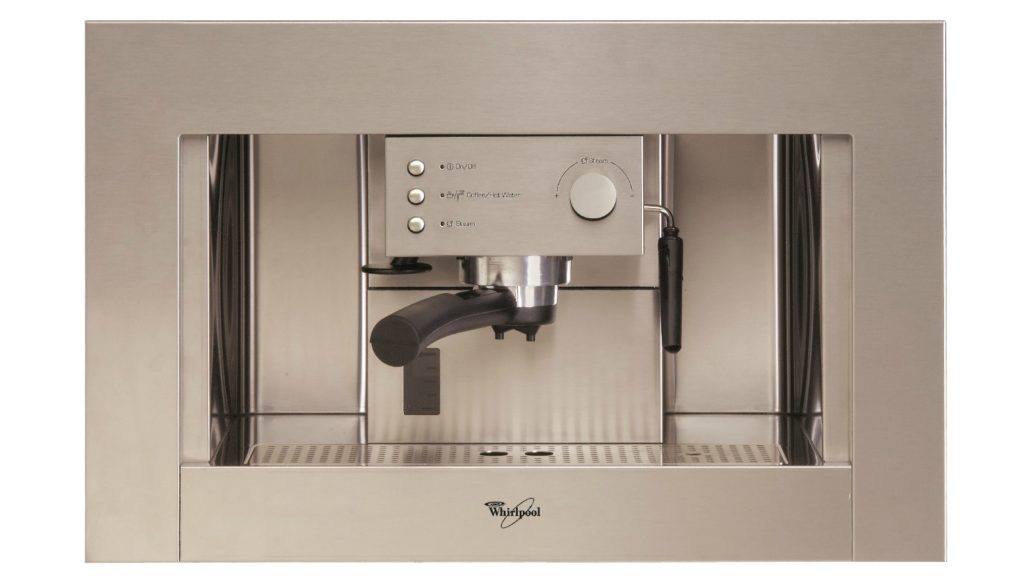
Part of the Absolute collection of appliances if the ACE 010/IX built-in coffee machine from Whirpool. It features an integrated water tank, so doesn’t need to be plumbed in and provides 1.5 bar pressure to create ‘cafe-style’ expressos and cappuccinos
So it’s unsurprising consumers want to create at home experiences, with drinks appliances, particularly when the coffee shops have been shut.
Marketing manager at Morphy Richards Annaliese Curtis comments: “The global coffee machine market was valued at £5.88billion in 2018 and was projected to register an annual growth rate of 3.7% from 2019 to 2025.”
The coffee machine market has been embraced by manufacturers of major home appliances, as part of their built-in offer.
Most recently, Miele, Neff and CDA have ensured coffee machines are included in their latest launches.
In fact, last year, Smeg acquired La Pavoni which is an Italian manufacturer of domestic and professional espresso machines.
With more brands entering the market, combining specialisms of coffee production with their knowledge of appliance manufacture offering plumbed in and integrated tank models, it has widened the market for built-in coffee sales.
Rise of espresso
While the most popular coffees in the UK are Latte, Cappuccino, Americano and increasingly the Flat White, according to Coffee Central Roasting Company, the fashion for espresso is on the rise.
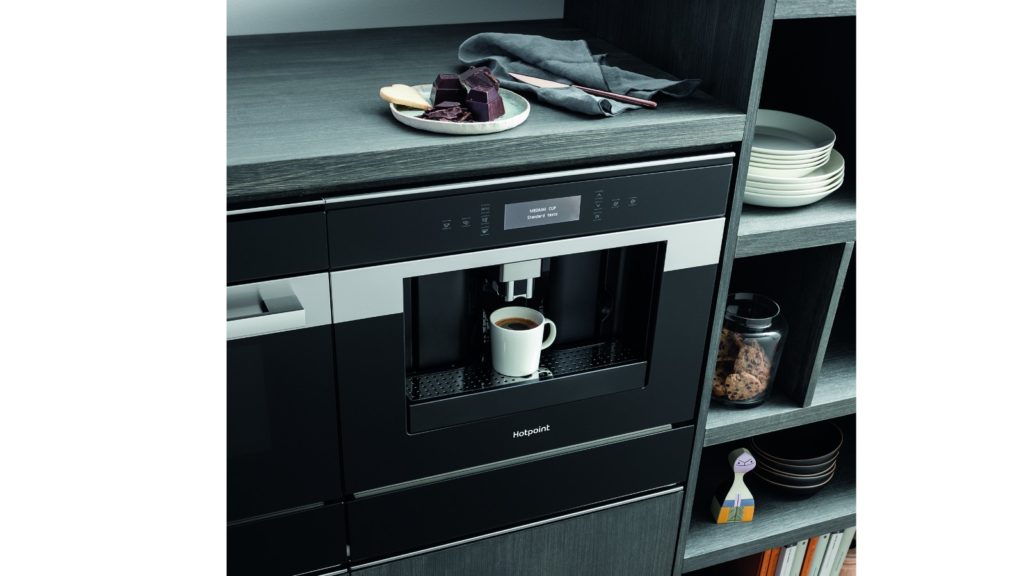
The Hotpoint Class 9 Coffee machine (CM 9945-H) offers four coffee options: espresso, double espresso, regular cup and large cup. It has an adjustable grinding level
In fact, Annaliese Curtis of Morphy Richards points to a growing trend: “Espresso machines continue to gain ground as the trend of ‘be your own barista’ urges us to enjoy coffee shop quality espresso at home. We predict that as people slowly adjust to the post-Covid ‘new normal’ and feel safer at home that this growth will continue.”
So whatever a consumer’s choice of coffee, kitchen specialists can be confident there will be an appliance to meet their coffee needs.
Wine consumption
But, arguably stealing the headlines is how the lockdown has affected at-home alcohol consumption. The Metro newspaper reported in April that one in five adults who drink alcohol were drinking more often since lockdown.
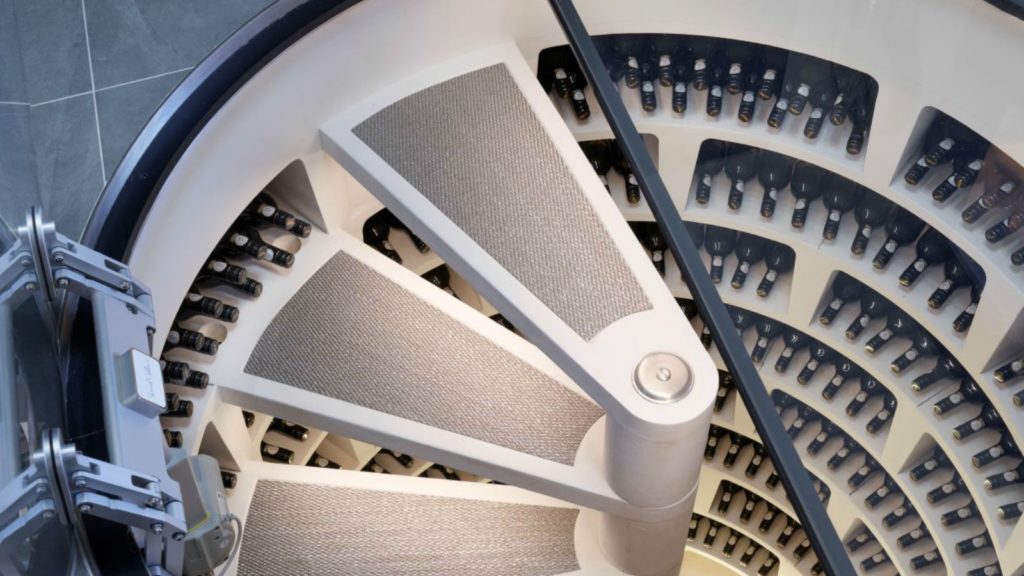
Bespoke wine storage manufacturer Spiral Cellars has introduced a ‘cost efficient’ kit, enabling a construction team to create their own underground storage without the company’s dedicated service team. It is available in three depths, which can hold from 1,000 to 9,000 bottles
And more recently, in July, The Guardian stated the value of beer, wine and spirit sales sold through Grocers was up 41% in June.
It suggests there is a growing opportunity for wine storage drinks appliances sales for kitchen showrooms.
It could be particularly true as wine consumption is so closely aligned with preparing food.
In fact, kitchen retailer Harvey Jones found in a recent consumer survey that more than one in three Brits (38%) drink alcohol while cooking.
And there is a wide array of storage to suit all consumers from purpose-built cellars, for the absolute connoisseur, to dedicated wine fridges spanning slimline and undercounter through to freestanding models.
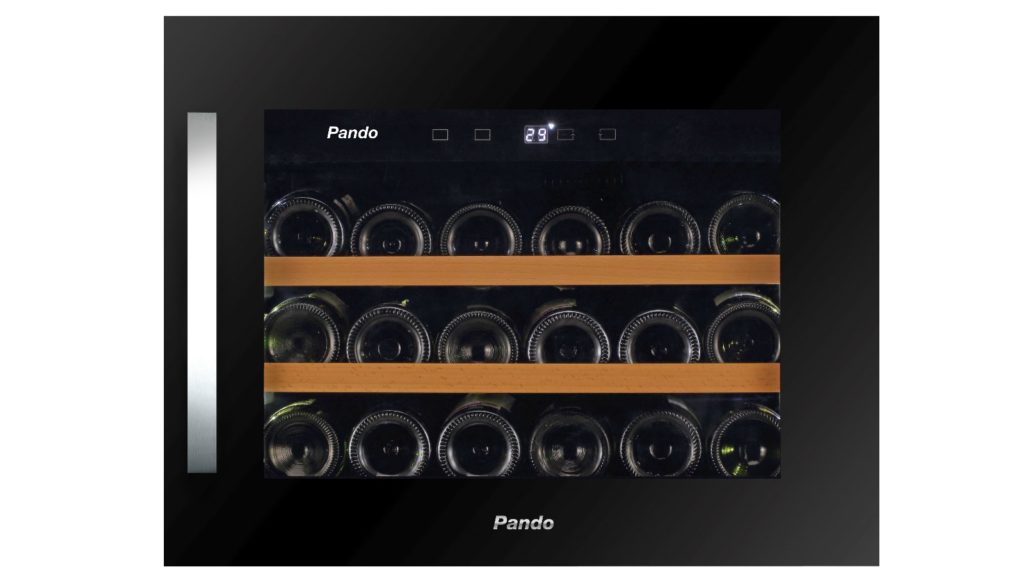
Now available in the UK from high-end Spanish appliance brand Pando is a range of luxury wine coolers. It includes models which cater from 7 to 178 bottles in undercounter and built-in options
Most recently Fulgor Milano and CDA unveiled wine fridges at KBB Birmingham and Spanish appliance brand Pando has also introduced luxury wine coolers to the UK market.
The range includes coolers that take from 7 to 178 bottles and includes under counter and built-in models.
It means there is choice not only for consumers new to wine fridges but also those with an appliance that may no longer cater for their storage requirements.
Luke Shipway of Caple agrees: “A consumer may start with a slimline wine cabinet and once they see the benefits, they may want to trade up to a larger model, with glass shelves for soft drinks, for example.
“Starting from the ever-popular, under counter wine cabinet design, you could then invest in a larger, fully-fitted model with a furniture frame.”
Caple has recently introduced the WC1800 wine cabinet as part of its Sense Premium collection, which can be framed by furniture and can be fully integrated or offered with a glass door.
While coffee shops, pubs and restaurants may now have reopened, the lockdown will continue to play its part in boosting specialist drink appliance sales.
Consumers will take their experiences of at-home entertainment and realise its relevance in their next kitchen project



